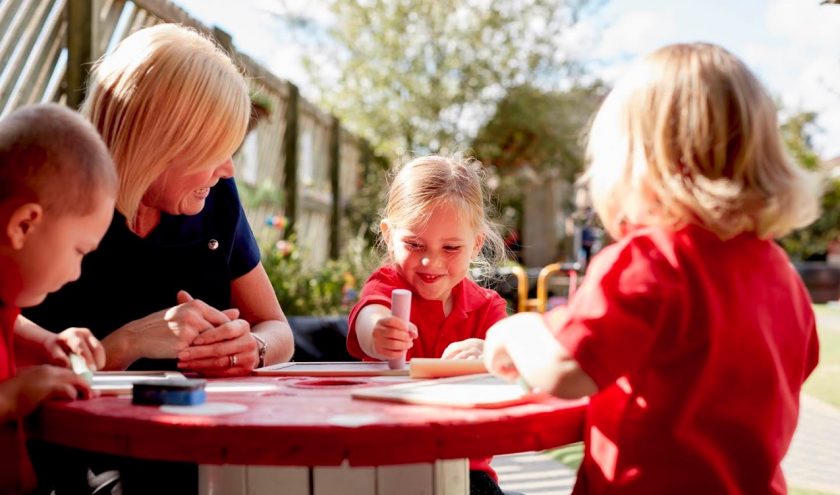

A wellbeing counsellor has given advice to parents and families about children’s mental health as they approach a return to school in September.
The Child and Adolescent Mental Health Service’s (CAMHS) interim report, released in July, found “serious concerns” about the impact lockdown has had on the mental health and wellbeing of pupils and school staff.
Schools who participated in the pilot programme are now better prepared for the return in September, but delivery of the programme will need to change as a result of COVID-19.
Jamie Doyle, a mental health and wellbeing counsellor who also works as a Community Wellbeing Coordinator for North East Wales Mind, says whilst not working with children during the lockdown period he has noticed an “increase in anxiety” amongst teenagers and young adults “who already had a history of anxiety”.
He said: “With some it’s gone from a general anxiety to more of a health anxiety which is understandable but seems more intense.
“I’ve also had parents talk about the huge pressures of having children with additional needs (such as ADHD) at home constantly and how they are desperate for their kids to go back just to ease the pressure on themselves but are also anxious about the safety aspect.
“They’ve also spoken of how their children have struggled with the lack of socializing and in some cases become more withdrawn.”
Offering advice on how both children and parents can deal with the return to school after lockdown, Mr Doyle recommends embracing all help and methods they can.
He says that all families are going through this period and it is normal to feel anxious or stressed.
“In this situation it would be strange to NOT feel anxious or concerned and any worries parents and children have are completely normal and a natural reaction to what has been and continues to be a very unnatural situation,” he said.
“At North East Wales Mind, we are setting up a community wellbeing hub based at Flint Library and online with different groups and activities, support, one to one guided self-help and a mental health social worker so if parents or relatives are struggling they are welcome to access this.
“There are also many counsellors who are working again, either face to face (with precautions regarding COVID-19), phone based or online for either parents, whole families or obviously children themselves to access.
“In these times mental health should never be downplayed, especially with regard to the young.”
In a joint statement on 23 August, Dr Frank Atherton and other Chief Medical Officers wrote how they were confident in evidence showing a lack of schooling “increases inequalities”, “reduces the life chances of children” and “exacerbates physical and mental health issues.”
Whilst they say school attendance is important for children and young people they are also confident in extensive evidence suggesting children are at small risk of dying from COVID-19.
Wales Health Minister Vaughan Gething, speaking with BBC Radio Wales, stated it is important for children to go back in September.
Citing the work from Dr Atherton’s report he mentioned the “harm” that has been done to children missing out on school.
“A lot of our children not being in school will actually widen disadvantage and challenges an effective early years education, which can be one of the most important aspects of giving people better life chances,” he said.
He further added that the “behaviour” of adults outside of school, such as social distancing and good hand hygiene, is more important due to the evidence of children being “less likely” to pass the virus on.
In another article published on 19 August, Connect, a not-for-profit wellbeing curriculum for primary schools, states they believe children can learn “how to talk about and manage their thoughts and feelings from an early age.”
They say it promotes resilience, provides coping mechanisms and helps lower risks of mental health issues later in life.
Their proposed curriculum, labelled PSHE (Personal, Social, and Health Education), is based around the “Six Ways to Wellbeing”, them being “connecting with others”, “challenging oneself”, “giving to others”, “exercising”, “embracing the moment”, and “self-care”.
The curriculum is said to teach children “how to effectively manage their thoughts, feelings and behaviours in a fun and experiential way”.
Mr Doyle welcomes the idea, believing it is “brilliant”, but is concerned with the practicality of it.
He said: “For this to succeed at such a time as now will need schools and authorities to embrace it wholeheartedly and treat it as vital to younger people as the established curriculum is.
“In the last few years schools have been positive about introducing mindfulness and other wellbeing approaches to pupils which has been great to see.
“The pandemic has probably brought regular practice of these methods to a sudden halt for many and it will be crucial that children are reintroduced to it as soon as they return to school.
“At Mind we deal more with adults, so we tend to see that end of things really.
“In my private work I have used things like mindfulness and art-based journaling to encourage children to recognize their emotions and general mental health and go through very basic relaxation techniques.
“The techniques usually fit in really well with some of the approaches in schools.
“In the increasingly chaotic world we live in it’s so important for children to have access to this.”
Contact Jamie Doyle’s work number to get in touch about Mind’s Wellbeing Hub: 07799 783977
More useful resources:
NSPCC contact options – https://www.nspcc.org.uk/about-us/contact-us/
YoungMinds.org.uk contact options – https://youngminds.org.uk/contact-us/
CEOP’s Thinkuknow education programme – https://www.thinkuknow.co.uk/
—–
By Jordan Adams
Spotted something? Got a story? Send a Facebook Message | A direct message on Twitter | Email: News@Deeside.com